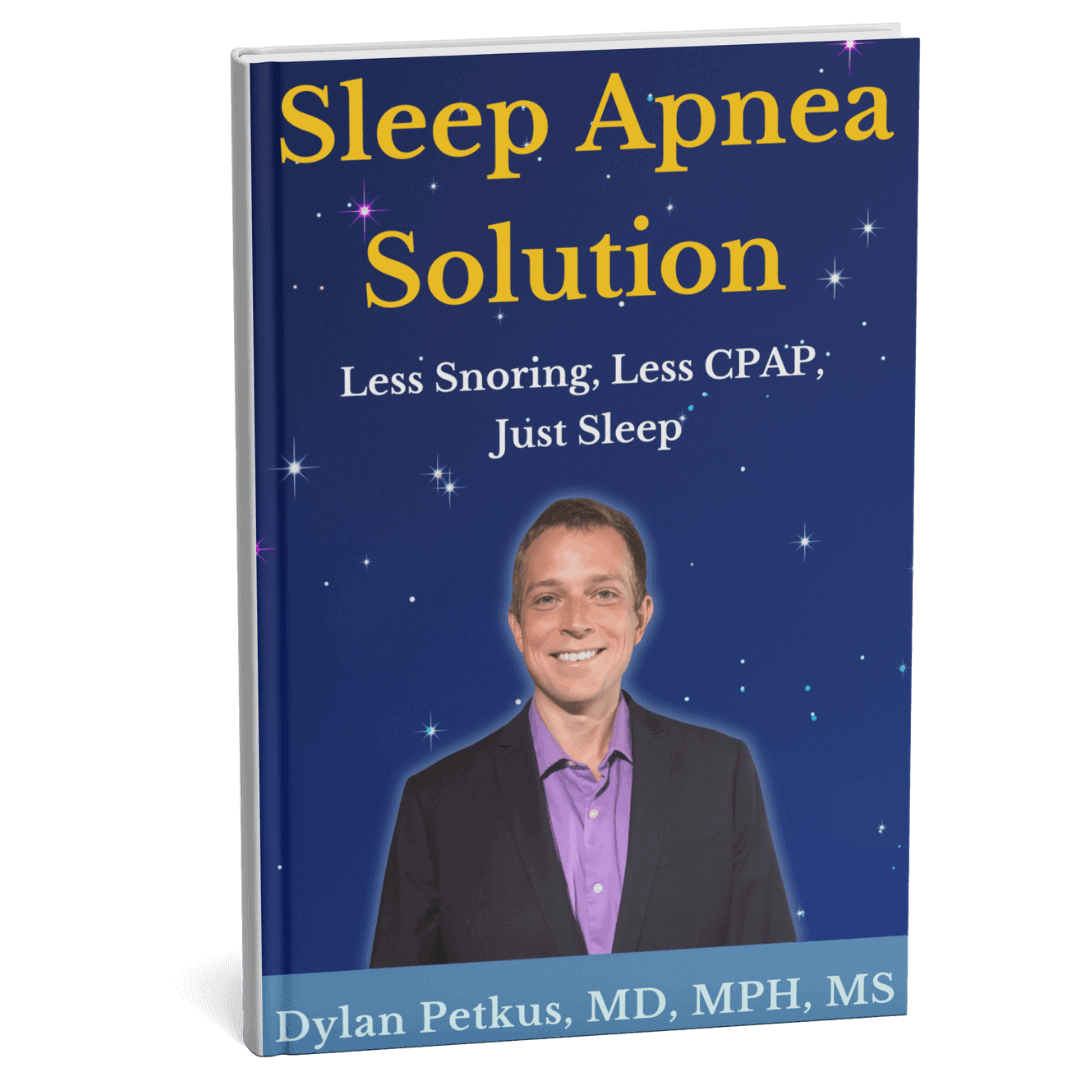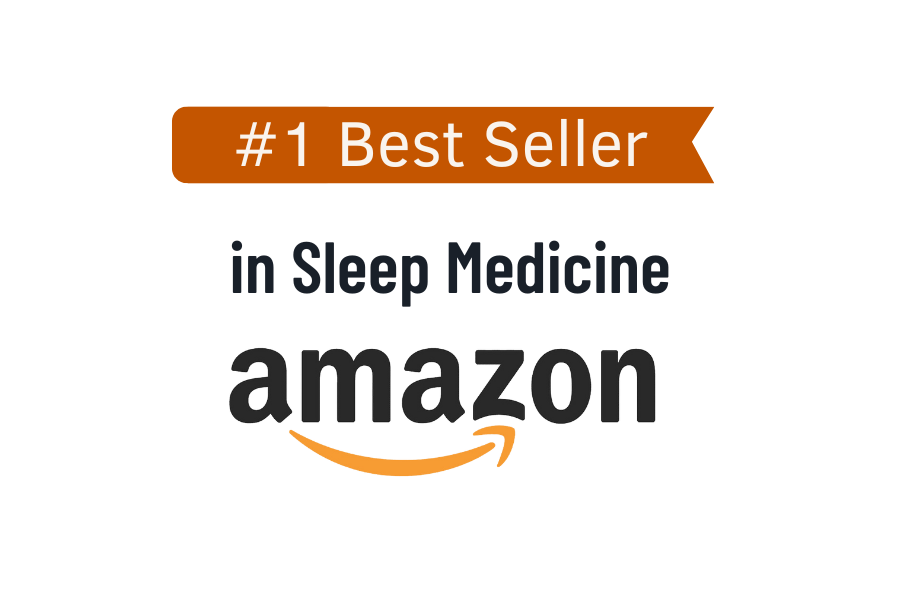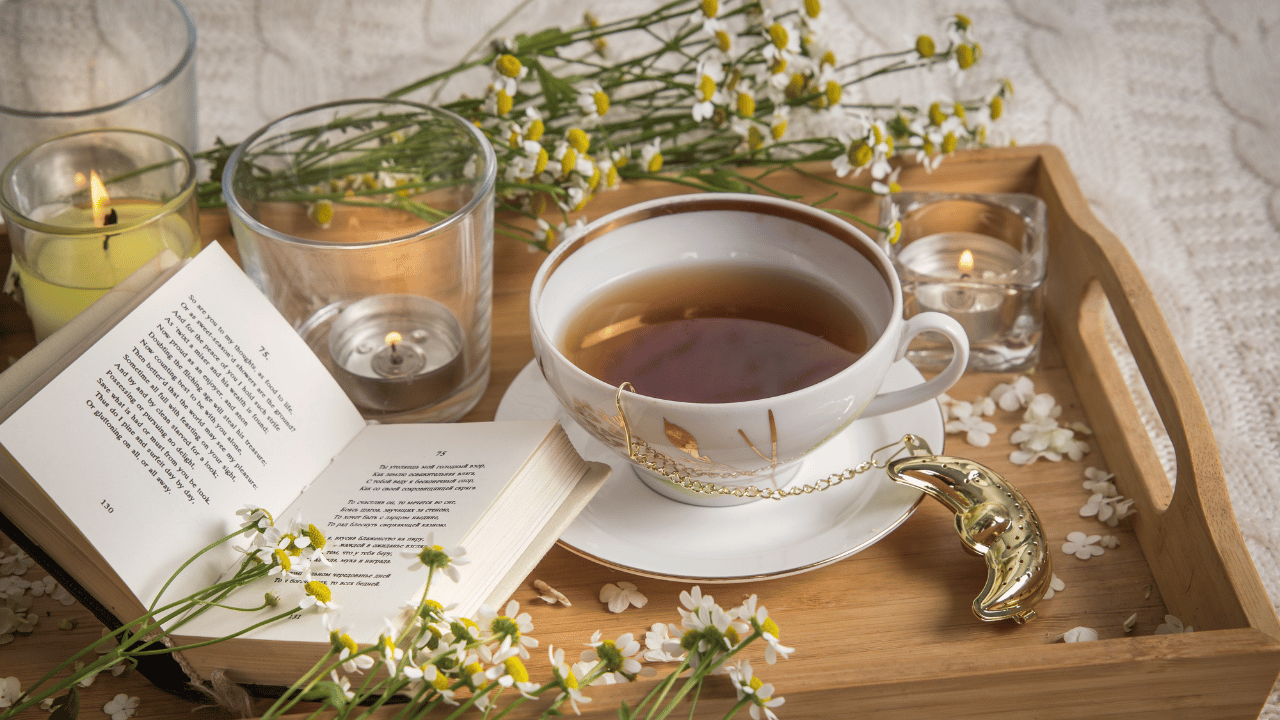
Many people use supplements for sleep apnea to try and build upon their ability to unwind and relax in the evening and to optimize the efficacy of breathing techniques, sleep positioning, and a healthy sleep environment to help promote easier nighttime rest. Sleep apnea sufferers also often use herbal teas, primarily because of the lack of caffeine but also because some perceive that a warming drink, such as chamomile or peppermint tea, can help support a better night of sleep.
Today, we’ll look at why this is, alongside natural, plant-based products like lavender essential oil that sleep apnea sufferers commonly incorporate herbal tea into their bedtime schedule to form habits that augment restfulness and could potentially help them get to sleep more quickly.
Types of Herbal Tea Blends Used for Sleep Apnea
Many herbal teas marketed as beneficial for sleep contain well-known herbs, spices, and roots derived from plants, making them suitable for most people, including those following nutritional diets to improve their overall health as part of a multifaceted sleep apnea approach. Here are some of the most common ones:
Lavender Teas
Controlled trials have found that lavender, combined with good sleep hygiene, can positively impact people struggling with sleep–although this research related to general participants rather than specifically to sleep apnea. However, some find that warm, caffeine-free lavender tea can help soothe stress and anxiety, which can exacerbate sleep disturbances, as a way to help them unwind and relax.
The active ingredients within the lavender plant, including linalool and linalyl acetate, are thought to work as nature’s sedatives with sleep-inducing effects. While not a resolution for sleep apnea, they may help lower the impact of anxiety to work towards greater sleep quality.
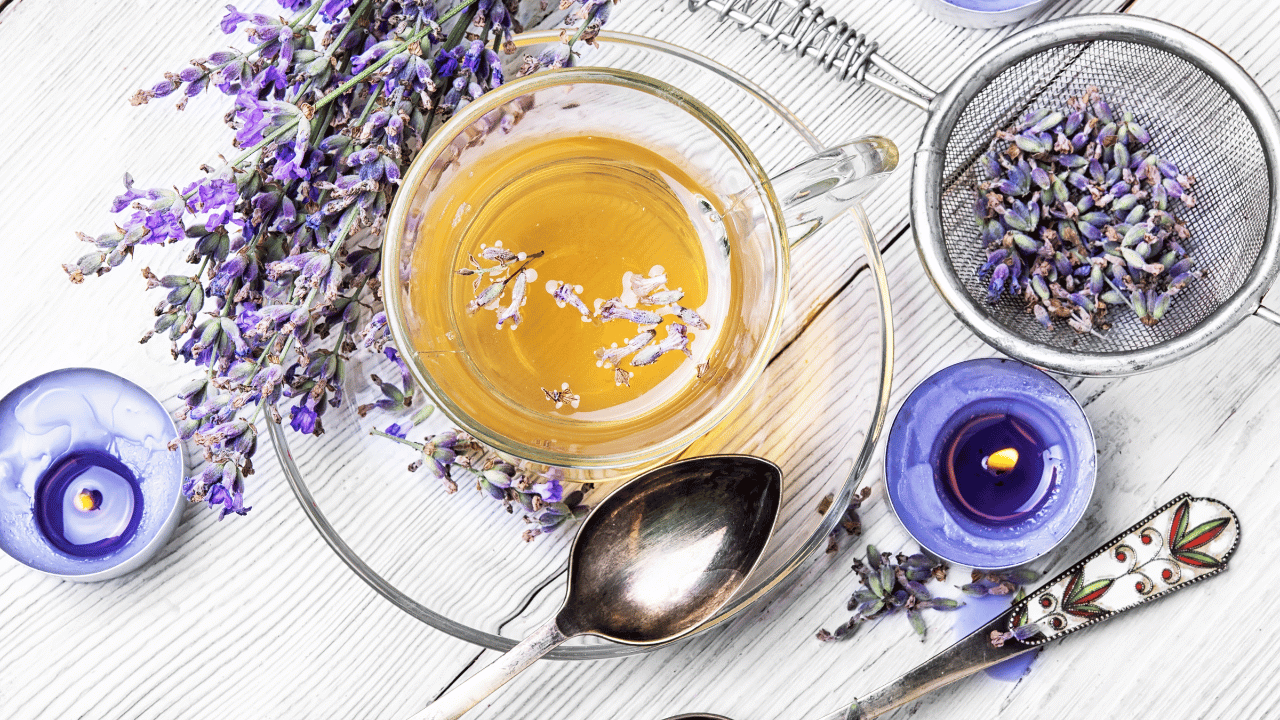
Chamomile Teas
Chamomile has long been used in herbal and holistic products as a natural tea containing a flavonoid called apigenin. This flavonoid may help promote sleepiness by lowering stress and preparing the mind and body for rest.
Researchers have established that chamomile is safe for older adults and found that in select groups, again not necessarily with sleep apnea, chamomile extracts could help enhance general sleep quality. Many people prefer to drink a warm cup of chamomile tea before bed or after meals as part of an established sleep routine.
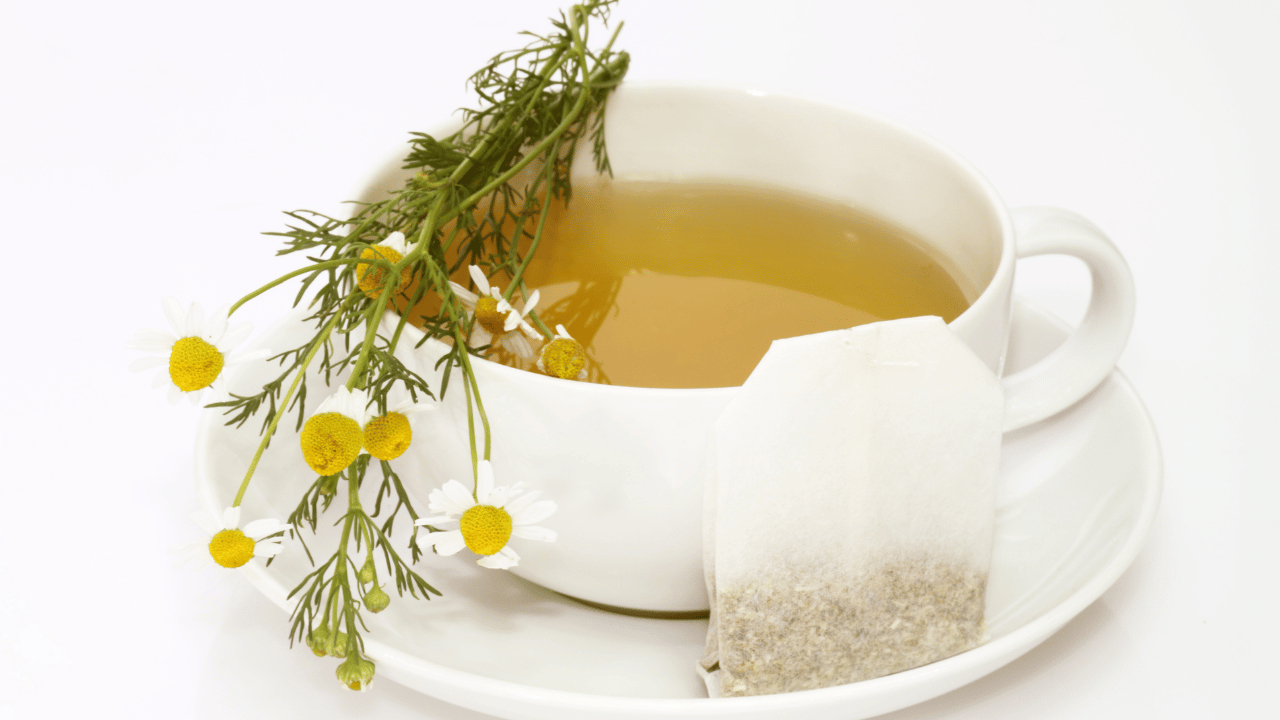
Valerian Teas
Valerian tea is made from a root extract taken from the valerian plant. Because it often has a distinct scent, it is most commonly sold blended with other ingredients like chamomile and lavender, which we’ve already mentioned.
Although there is conflicting evidence about the effectiveness of valerian root, some believe that the antioxidant compounds present in it, and in many other plants and roots, help induce sleep, relaxation, and calm–all of which are essential to sleep.
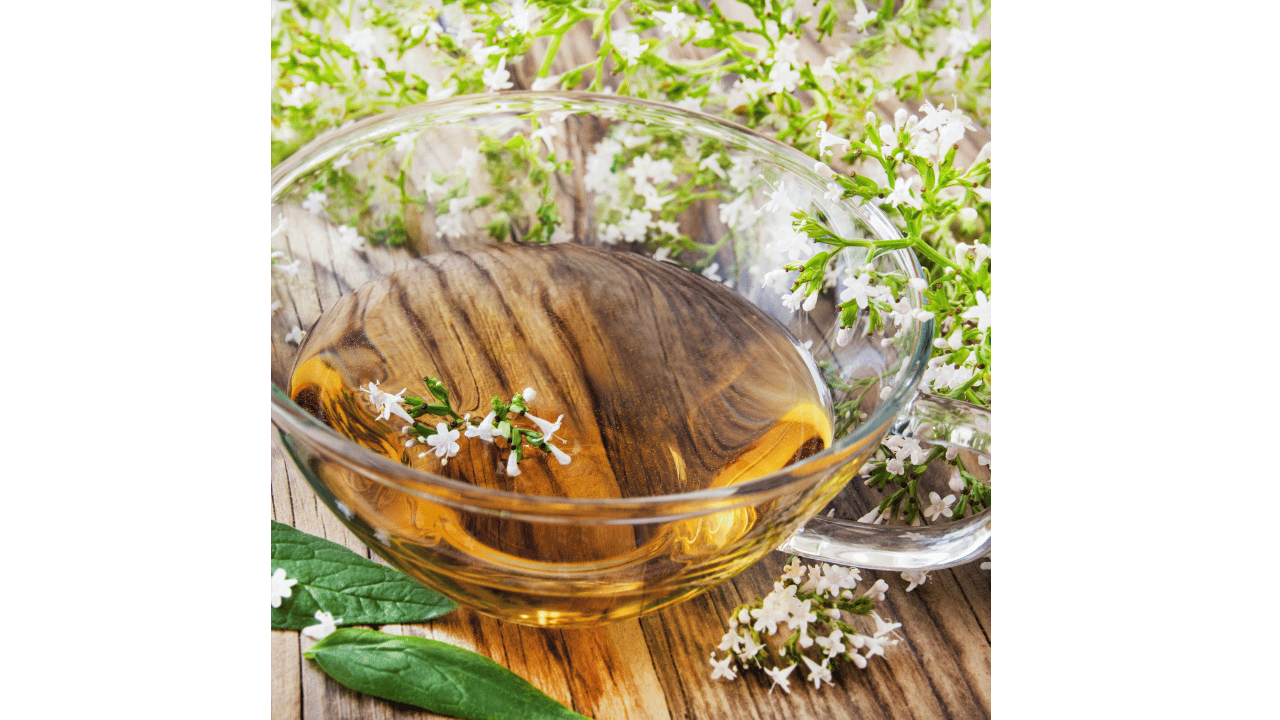
Rooibos Teas
Rooibos, sometimes sold as ‘red bush tea,’ is another caffeine-free herbal tea. Although it isn’t thought to have any nutritional properties or sleep-inducing vitamins, its soothing effect could make it a good tea for sleep apnea.
This tea, made from plant leaves, is also a source of magnesium, which may be useful for people with low magnesium levels, although there remain mixed thoughts about the role magnesium may play in sleep.
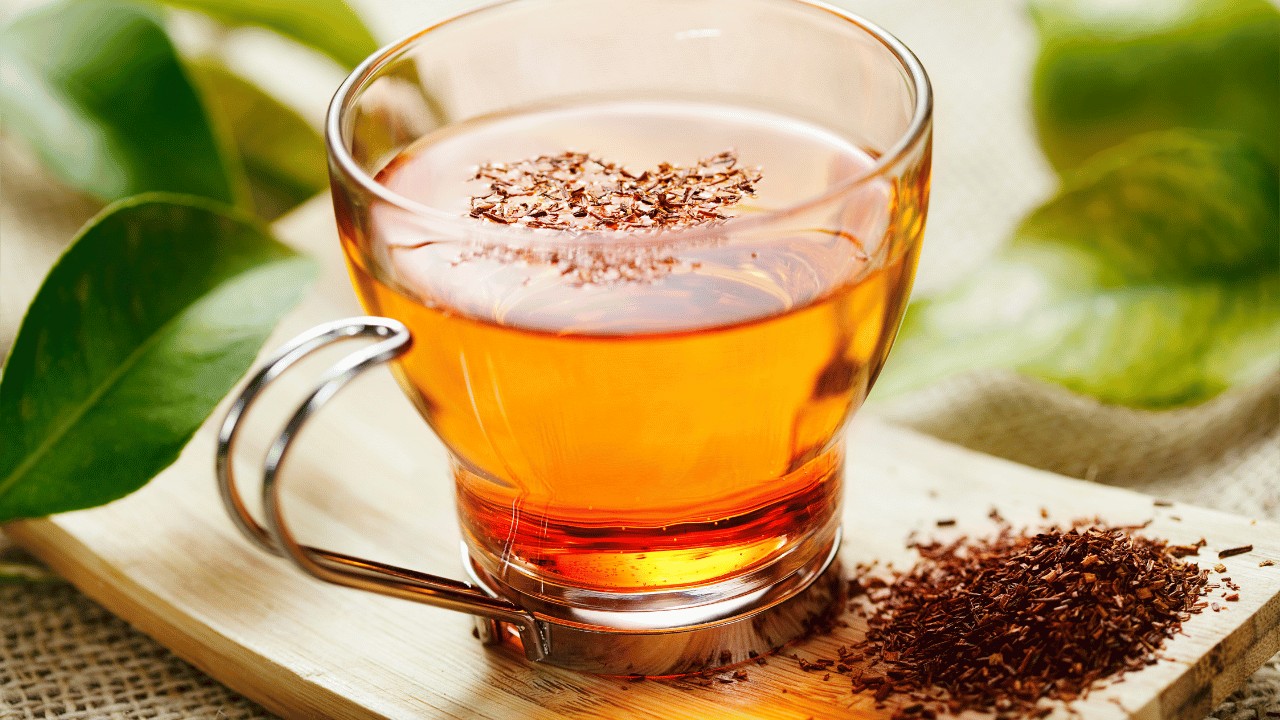
Using Herbal Teas as Part of Your Approach to Sleep Apnea
Some herbal teas have known properties or ingredients useful for better quality sleep, whereas others are subject to individual perceptions and might seem to have varied effectiveness between people. A warm, non-caffeinated drink before bedtime, though, is typically beneficial and can form part of an intentional sleep hygiene routine, regardless of the flavors of teas you prefer.
The caveat is that no herbal tea is thought to ‘treat’ sleep apnea as an alternative to medically supervised interventions or breathing exercises. Still, if you find any of these teas useful for relaxation, they may be well worth a try.
The best ways to help overcome sleep apnea tend to involve several steps, from addressing vitamin deficiencies to creating a sleep-positive routine, learning breathing techniques, and working on overall health and lifestyle factors that may assist in lowering the severity of your symptoms.
If you’re looking to introduce a great sleep routine, we recommend getting the Sleep Apnea Solution By Dylan Petkus, MD. This intuitive and user-friendly guide explores the power of tried-and-tested breathing techniques and optimizing your diet and sleep habits to boost natural breathing at night!

